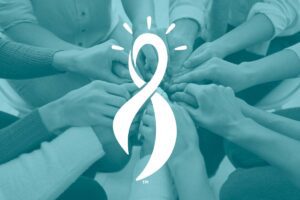In the journey through ovarian cancer, the bond between survivors and caregivers is a source of strength and support. Open communication is the cornerstone of this relationship, offering many benefits for both parties. Let’s explore the advantages and explore some tips to enhance communication, fostering a deeper connection and understanding.
Benefits of Open Communication
Emotional support: Sharing thoughts and feelings creates a safe space where caregivers can provide comfort and reassurance, forming a foundation of emotional support. Survivors, in turn, find comfort in knowing they are understood and embraced by their caregivers.
Mutual understanding: Open communication creates a profound understanding between survivors and caregivers. Expressing perspectives, fears, and hopes builds empathy, strengthens your bond, and creates a supportive environment.
Collaboration: Informed decision-making becomes a collaborative effort through open communication. Discussing treatment options, side effects, and recovery goals empowers survivors and caregivers to work together, ensuring the best possible outcomes.
Stress relief: Addressing challenges and worries openly alleviates emotional burdens. Sharing concerns fosters understanding, reduces anxiety, and promotes overall well-being for survivors and caregivers.
Problem-solving: Effective communication becomes a tool for problem-solving. By openly discussing obstacles, survivors and caregivers can brainstorm solutions, navigating challenges more efficiently as a united team.
Tips to Improve Communication
Listen with empathy: Give your full attention, maintain eye contact, and respond with compassion. Listening actively shows that you genuinely care about your loved one’s thoughts and feelings.
Encourage sharing: Create a safe space where you feel comfortable expressing thoughts and emotions. Assure one another that your feelings are valid and respected, fostering an environment of openness.
Validate experiences: Acknowledge the challenges and emotions faced by both parties. Mutual validation creates a foundation of understanding, reinforcing the connection between survivors and caregivers.
Ask open-ended questions: Foster meaningful conversation by asking questions that encourage sharing. Open-ended questions allow you to gain insights into each other’s needs and perspectives.
Be patient and supportive: Recognize that good and challenging days are part of the journey. Be patient and supportive, offering encouragement and reassurance throughout the ups and downs.
By prioritizing open communication, you create an environment where you and your loved one feel heard, understood, and supported. Together, you can navigate the complexities of ovarian cancer, strengthening your bond and facing the journey with resilience and unity.





